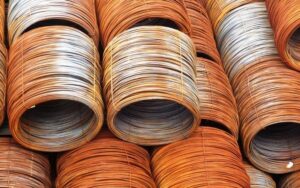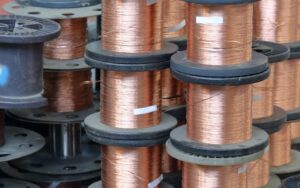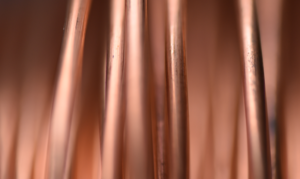Table of Contents
In this modern era, there is a huge demand for tiny components, for instance, transducers and sensors. This increasing demand is because of their crucial applications in advanced micro-motion control and positioning systems. Then again, to manufacture these components, micro-coils are essential. When it comes to manufacturing micro-coils, manufacturers require ultra-fine wires to wind around a core. However, there are substantial challenges associated with the micro-coil manufacturing process that involves ultra-fine wires.
The coil winding process is a difficult task especially when the process involves ultra-fine wires. The major challenges for the manufacturers are environmental factors, physical size constraints, and the customers’ demand for the desired size of the coils. It is also essential to fulfill the ultra-strict tolerance requirements during the manufacturing of the micro-coils.
To deal with all the above-stated challenges, traditional coil winding methods are not useful. However, instead of the drawbacks of traditional techniques, several regular coil manufacturers do not have efficient technology for the micro-coil winding process. Hence, when it comes to manufacturing specialized micro-coils, you require the support of a coil winding specialist.
Advanced Coil Winding Techniques:
In order to protect the ultra-fine wires and avoid breaking the insulation layer, efficient coil winding techniques are essential. Careful handling of the ultra-fine wires is essential because of the tiny diameter (9microns) of these wires. For the micro-coil winding process, connectivity of the ultra-fine wires is necessary. However, building connection between ultra-fine wires is the most significant challenge that the manufacturers face. In order to have a connectivity solution, you can not rely on the traditional heat-based soldering methods because of low durability, inferior connectivity, and some other drawbacks. Therefore, to have the ultimate solution for connectivity problems and avoid breaking the insulation point, most coil winding specialists rely on thermal compression bonding technology to build the connection between ultra-fine wires. Whether it is about joining similar wires or different wires (different diameters or separate materials), this technology is highly efficient.
The Advantages of Thermal Compression Bonding Technology:
Manufacturers can receive various advantages from thermal compression bonding technology, such as-
- With the help of this technology, manufacturers can diminish the noise levels.
- In order to release the strain at the junctions, this technology is efficient.
- The production process with this technology is very safe and you don’t need to worry about the damage of the sensitive components.
- This technology ensures the high reliability of the connections by protecting the wires from oxidization.
- You can also integrate this technology with the mass production processes and this will help you to reduce the overall production costs.
- This technology involves automated machinery in order to remove human errors.
Therefore, when you are taking support from the coil winding specialists, you should ask them whether they are applying thermal compression bonding technology in the manufacturing process or not.
Types of Connections:
You can have different types of connections with the help of thermal compression bonding technology, such as
- The connection between tiny ultra-fine wires and copper thermocouples.
- The connection between different metals in order to connect the printed circuit board with the micro-coils through intermediate wires.
- Connection through metal-plated terminals to join the ultra-fine wires with the support system.
Whether it is about having high reliable molecular connection or corrosion-free and strain-free joints, thermal compression bonding technology is efficient. This technology is highly economical compared to the traditional methods and minimizes the total production cost. This technology is applicable for various customer environments and several production processes. When it comes to building long-life products, such as disposals and permanent implants, this technology is the most suitable method.
Applications:
The applications of connectivity technology and micro-coils are numerous, such as
- In the production of active implants, pain management devices and for monitoring pacemakers, deep brain stimulation, etc.
- In therapeutic applications including electricity-based extirpations and electrophysiology treatments.
- To produce navigation and orientation sensors for targeted radiation catheters, highly accurate ablations, endoscopic manipulation, stent positioning, targeted drug delivery, implanted markers, etc.
- In orthopedic and dental treatments to produce pulse electromagnets.
- In the diagnostic field, to assess physiological conditions and to conduct wireless connections.
Micro-coils have numerous other applications and that’s why the demand for these coils is rising day by day. However, you should always consult a coil winding specialist for the production of the specialized micro-coils.




